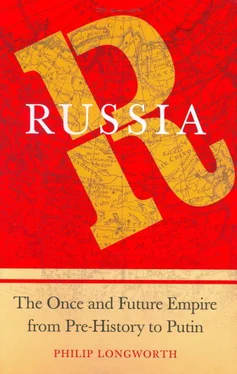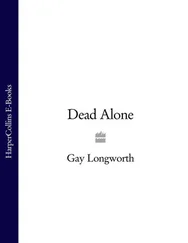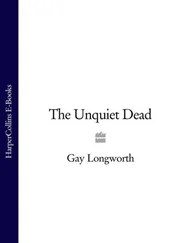The law limited funding for every presidential candidate to $3 million, but Yeltsin’s re-election committee soon gathered at least $500 million and perhaps as many as $1 billion. 21Those who contributed were to be richly rewarded for their generosity. The Communist campaign could count on up to 500,000 workers, but it could not get access to television in order to transmit its message. Yeltsin, on the other hand, enjoyed a virtual monopoly of television exposure. Leading American and British public-relations and advertising experts were also recruited to help his campaign. Everything was done to promote a favourable image of the President; every dirty trick was used against his Communist rival, Gennadii Ziuganov. Soft-sell, sentimental advertisements were particularly effective and teams of hecklers went everywhere that Ziuganov went, in order to disrupt his meetings. When a bomb killed four people in the Moscow metro the Communists were blamed and the electorate was invited to vote for Yeltsin, civic peace and stability. On 3 July Yeltsin won the second round of voting with 54 per cent of the poll. This was not an overwhelming endorsement, even though the election had been a travesty of constitutional democratic process. However, relieved that the Communists had been defeated, Western governments did not protest.
Moves soon began to remove the President on grounds of his ill health. He had undergone a quintuple heart bypass operation in 1996, and many felt that his health was too poor to sustain the burdens of office. Yeltsin soldiered on nevertheless. Troops were being withdrawn from Chechnya but there were troubles enough on other fronts. Reports were arriving from Latvia that the authorities there were discriminating against the country’s substantial Russian minority on linguistic grounds. Similar complaints were being voiced in Estonia and other formerly Soviet states. Public opinion was exercised about the issue: surely the government had a responsibility to those 20 million Russians who, though no fault of their own, had suddenly found themselves classified as aliens in another state. 22
Nor were these the only problems. There were difficulties reaching agreement with Iran and the former Soviet republics of Azerbaydzhan, Kazakhstan and Turkmenistan over rights to the Caspian oilfields, and negotiations with Ukraine over how to divide up what had formerly been the Soviet Black Sea fleet proved both hard and protracted. Agreement was finally reached in May after more than five years of talks. In August, US warships visited the Crimea and joined others from Turkey, Romania and Bulgaria — all three now aligned with the USA — for exercises in the Black Sea. This flag-waving outside Russia’s new back door was resented. As the weeks passed it also became clear that extremists were taking over in Chechnya. In January 1997 Boris Berezovskii was appointed deputy head of Russia’s Security Council, perhaps as a reward for his help in getting Yeltsin re-elected, but Berezovskii had interests in Chechnya and contacts with Chechens.
By 1997 the outlook seemed to be brightening. For the first time since the collapse the economy grew a little. But black clouds soon gathered once again. A financial crisis in Asia was soon to affect Russia, and 1998 showed the economic upturn of the previous year to have been a false dawn. More than one Russian in four was now living below the poverty line; the government was still short of revenue, and the financial system was close to collapse. That January interest rates rose to over 40 per cent. Worse was to come. In the first half of the year world oil prices fell 40 per cent below the average for 1997, and in April the value of the ruble tumbled as Russia’s indebtedness soared. In May the parliament, which Yeltsin had been forced to reinstate, passed a motion impeaching Yeltsin for treason by a vote of three to one. However, the constitution demanded a two-thirds vote in the Federal Council too before the President could be forced out. The delay saved Yeltsin for the moment.
In July the IMF advanced almost $5 billion to support the ruble, but the currency could not be saved. In August the government was forced to devalue it sharply, declare a moratorium on foreign creditors, and default on its domestic debt. Banks collapsed, and crowds of worried, angry people crowded round their bolted doors in the vain hope of trying to withdraw their savings. Yeltsin had no alternative but to appoint a premier whom parliament would find acceptable. The least objectionable to Yeltsin himself was an experienced foreign-affairs specialist, Yevgeny Primakov. At the same time Vladimir Putin, who had been a KGB operative in East Germany before the collapse and had since worked for the city of St Petersburg, became chief of security. But Yeltsin was already overdrawn on his political account. His days in power were numbered.
That year the ruble had lost nearly three-quarters of its value, the economy contracted by another 5 per cent, and inflation rose to 80 per cent. Parliament’s impeachment vote of May 1998 proclaimed that Yeltsin had betrayed his country. It could indeed be argued that, whatever his intentions, he had served the interests of the United States rather better than he had served those of Russia, and he had certainly broken trust with the people. According to Stiglitz, an American economist who had held senior office in the IMF:
The [Russian] government was virtually giving away its valuable state assets, yet was unable to provide pensions for the elderly or welfare payments for the poor… [It] was borrowing billions from the IMF, becoming increasingly indebted, while the oligarchs who received such largesse from the government were taking billions out of the country
The IMF had encouraged the government to open up its capital accounts, allowing a free flow of capital. The policy was supposed to make the country more attractive for foreign investors; but it was virtually a one-way door that facilitated a rush of money out of the country.
It was Washington that most feared a revival of Communism; Washington that had encouraged Yeltsin to take that disastrous short cut; Washington that wanted no debate on economic policy in Russia. As Stiglitz put it, Washington was ‘afraid of democracy’. And, when the ruble crisis of 1998 came, it was the Clinton administration that pressured the World Bank into lending Russia money, even though many of the bank’s own officials were against it. As a result a ‘rescue’ was launched. Within days, billions of dollars appeared in Cypriot and Swiss bank accounts. In addition to the Russian oligarchs themselves, the beneficiaries were ‘the Wall Street and other Western investment banks who had been… pressing hardest for a rescue package’. Their investments in Russia had seemed lost, but when the IMF rescue came through they seized the opportunity of getting as much of their money as possible out. In destroying the last vestiges of the Communists’ planned economy, America had gained a major victory for private enterprise and open markets. The poor Russians (of whom almost half had to live on less than $4 a day) were left to bear the heavy costs of the operation. 23
A Russian anti-Communist intellectual wrote what might have been Yeltsin’s obituary. He thought Yeltsin to be ‘the perfect incarnation of the most repellent traits of the Russian psyche, of the most shameful features of the Russian national character: irresponsibility… ignorance, boorish-ness… servility towards the strong… [and with an] inferiority complex to the West’. 24Already in decline when he took office, most of the economy’s remaining strength had been dissipated during Yeltsin’s tenure of the presidency. And the population had fallen by 6 million in ten years. Now, belatedly, there were some signs of an improvement. GNP began to rise, inflation to fall, and the balance of trade to improve. True, Russia was heavily in debt to the West (it was soon to reach eight times the size of the national budget), but it was owed money by India, Cuba, North Korea, Mongolia, Poland and various other former members of the Soviet Bloc. The new premier, Primakov, steered a judicious course but decided, at last, to crack down on the corrupt. The prosecutor-general, who rejoiced in the name of Ivan the Terrible’s notorious hatchet man, Skuratov, was instructed to prepare for the prosecutions of Berezovskii and of Pavel Borodin, Yeltsin’s Chief of Staff. However, Yeltsin quickly intervened to dismiss both Skuratov and then Primakov. 25Democracy is no guarantee of good government. The election had given Yeltsin a mandate. Now he exploited it using his authority, which was in effect unlimited.
Читать дальше





![Stephan Orth - Behind Putin's Curtain - Friendships and Misadventures Inside Russia [aka Couchsurfing in Russia]](/books/415210/stephan-orth-behind-putin-s-curtain-friendships-a-thumb.webp)





